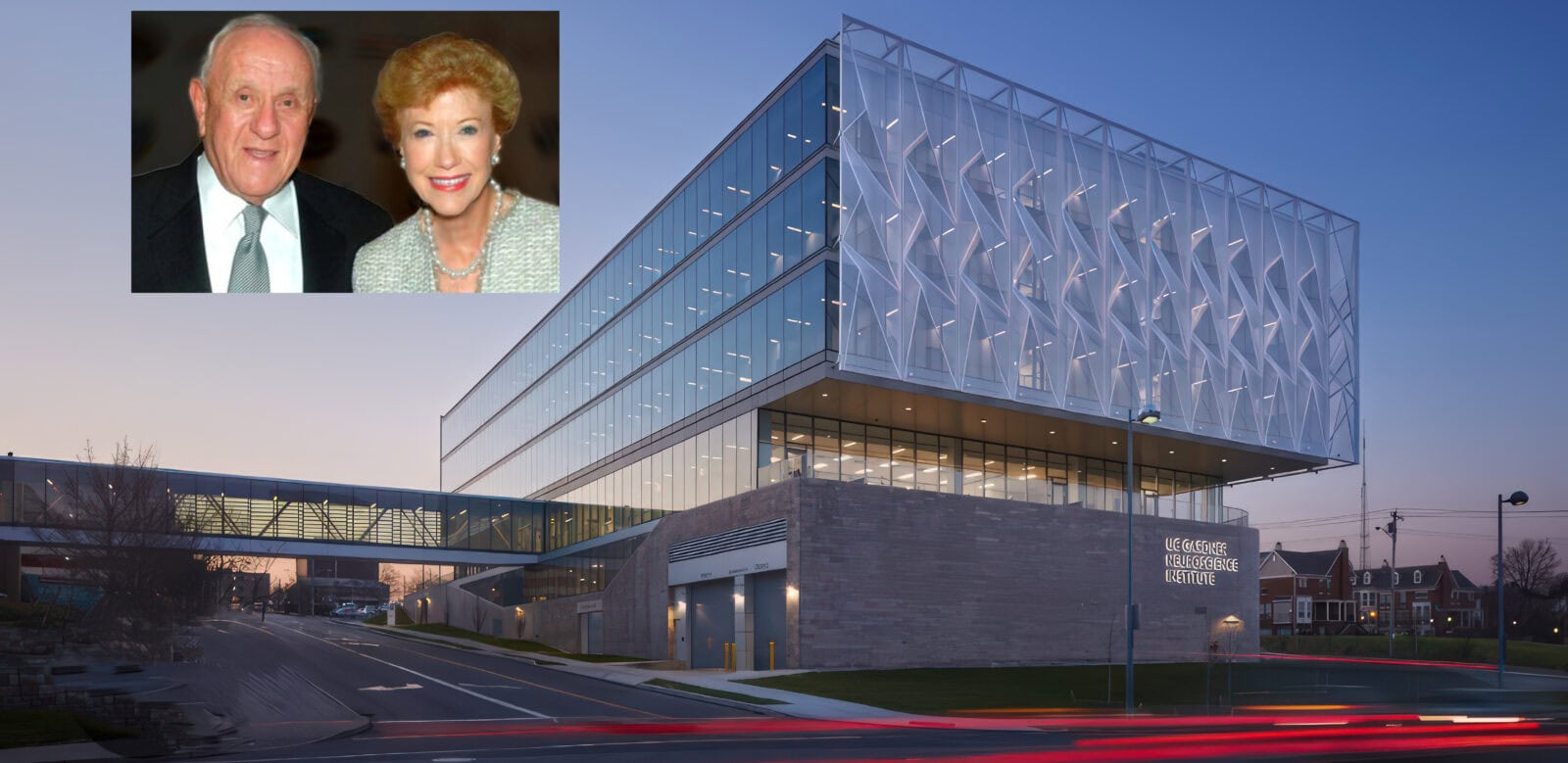$20 million new gift from James J. and Joan A. Gardner to university neuroscience institute toward national leadership in brain health

The University of Cincinnati’s Gardner Neuroscience Institute has received a transformative $20 million investment from the James J. and Joan A. Gardner Family Foundation, a landmark gift that will accelerate pioneering research, expand clinical care for memory and movement disorders, and position Cincinnati as a national hub for lifelong brain health.
With this contribution, the Gardner Family Foundation’s total giving to the University of Cincinnati now surpasses $50 million, deepening a decades-long partnership that began with the founding of the Neuroscience Institute in 2007.
Established by the late James J. and Joan A. Gardner, the Foundation has long been synonymous with compassion-driven philanthropy in Cincinnati.
Earlier gifts have strengthened UC’s research in Parkinson’s and movement disorders, supported a state-of-the-art outpatient facility, and modernized the UC Health Neuroscience Intensive Care Unit through a $5.25 million gift in 2023.
This enduring commitment has made the Gardner family one of the region’s most influential supporters of neurological innovation and care.
“It was my grandparents’ vision to provide patients in our community who suffer from neurological diseases with the best care, from the best people, in the best place,” said Kyle Johns, trustee of the Gardner Family Foundation and grandson of the founders.
“This new investment reflects our belief in the Institute’s ability to become a national model in brain health—advancing Alzheimer’s research, pioneering a first-in-the-nation learning health system, and ultimately achieving top-five national recognition.”
The gift will help accelerate UC’s development of a learning health system, an innovative model that continuously integrates patient data, real-world outcomes, and research to drive faster discoveries and improve care delivery.
“A learning health system is revolutionary because it captures information from patients and families and informs us of the outcomes that truly matter to them,” said Dr. Brett Kissela, director of the UC Gardner Neuroscience Institute. “This cycle of learning and feedback enables faster innovation and more personalized care.”
A significant portion of the investment supports UC’s pursuit of the National Institute on Aging’s Alzheimer’s Disease Research Center (ADRC) designation a distinction held by only 35 institutions nationwide.
Earning ADRC status would place UC among the nation’s top neuroscience centers, enabling deeper collaboration, broader data sharing, and expanded clinical trials.
“The Gardner Family Foundation’s generosity is propelling our vision to make UC a national leader in neurodegenerative disease research,” said Dr. Gregory C. Postel, dean of the College of Medicine and executive vice president for health affairs.
“Their support brings us closer to ADRC designation, strengthens our research enterprise, and delivers hope for countless families facing neurological illness.”
The gift also fuels the Cincinnati Cohort Biomarker Program, a major research initiative using a precision medicine approach to link patient biology to targeted treatments for diseases such as Parkinson’s and Alzheimer’s.
This effort aims to slow or even stop disease progression through more individualized therapies.
Since its founding in 1994, the James J. and Joan A. Gardner Family Foundation has become a driving philanthropic force in the Cincinnati region, supporting health, education, and community development initiatives that embody the Gardners’ lifelong commitment to service and compassion.
“Generational philanthropy is about more than writing checks,” said Johns. “It’s about creating a legacy of care and discovery that changes what’s possible—not just for today’s patients, but for generations to come.”
With this $20 million gift, the Gardner Family Foundation continues to redefine what is possible for brain health and neurological research in Cincinnati—fostering a legacy of innovation, humanity, and hope for all those affected by neurological disease.

